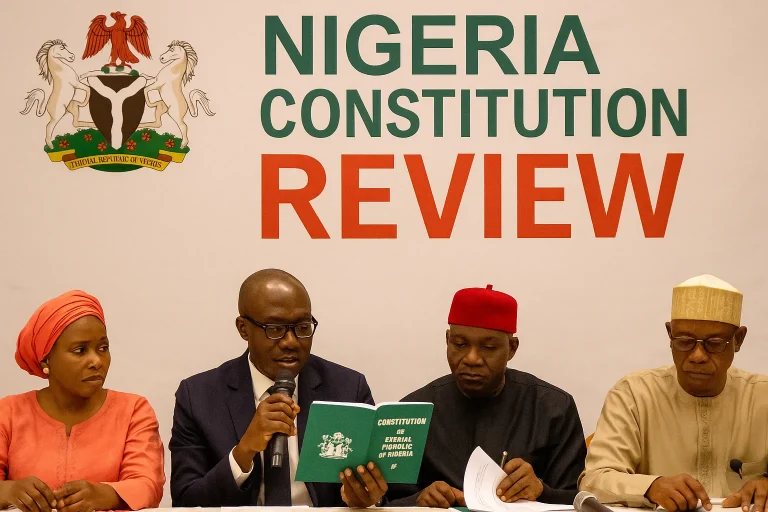Dr. Alkali’s memorandum calls for the complete removal of Section 308 of the 1999 Constitution (as amended), which shields the President, Vice President, Governors, and their Deputies from prosecution while in office. He described the immunity clause as “a constitutional license for impunity, theft, and abuse of office.”
According to the memorandum, the immunity clause has become a “blank cheque” for officeholders to divert public funds meant for critical sectors like education, health, and infrastructure. “Why should a poor man who steals a goat be jailed while a governor who loots N100 billion walks free under the cover of immunity?” Alkali questioned.
He criticized the House of Representatives for halting legislative action on the proposed amendment on March 27, 2025—just a day after passing it for second reading. He alleged that pressure from influential quarters forced the House to reverse course, calling the move “a missed opportunity” to fight corruption head-on.
“Immunity is undemocratic and has become a dangerous political tool fabricated by the ruling elite to evade accountability. It contradicts the principle of equality before the law,” he stated.
Dr. Alkali further argued that although immunity covers only prosecution and not investigation, in practice, no investigation is carried out on the President, Vice President, Governors, or their Deputies, even when credible allegations of corruption exist. “It has emboldened many to act as though they are above the law,” he said.
The memorandum warns that retaining the clause undermines the separation of powers and enables massive corruption, especially at the state level. Alkali cited examples where governors have allegedly diverted loans secured on behalf of states for personal or political purposes, shielded from any legal consequences due to constitutional immunity.
He also faulted the common argument that removing immunity would expose top officials to politically motivated litigation. “With proper judicial processes, the courts can sort out baseless allegations from real ones. Shielding leaders from scrutiny only deepens mistrust and opens the floodgates to mediocrity and looting,” he insisted.
Alkali also pointed out what he termed a “bandwagon effect” where other public officials—such as senators, ministers, and assembly members—although not constitutionally covered, act as though they enjoy immunity from prosecution.
He described plea bargains struck after the expiration of office as “an escape hatch” that allows former office holders to forfeit a fraction of stolen funds while retaining the rest. “A governor steals N100 billion and walks free after repaying N10 billion—this cannot continue,” he said.
Calling for equity and democratic integrity, Dr. Alkali urged the National Assembly to revive and pass the amendment expunging Section 308. He concluded that the removal of immunity would curb corruption, reinforce accountability, and strengthen democratic institutions in Nigeria.
As public calls for transparency and justice continue to mount, the House of Representatives faces renewed pressure to revisit the stalled amendment and take a decisive stance on the controversial immunity clause.


